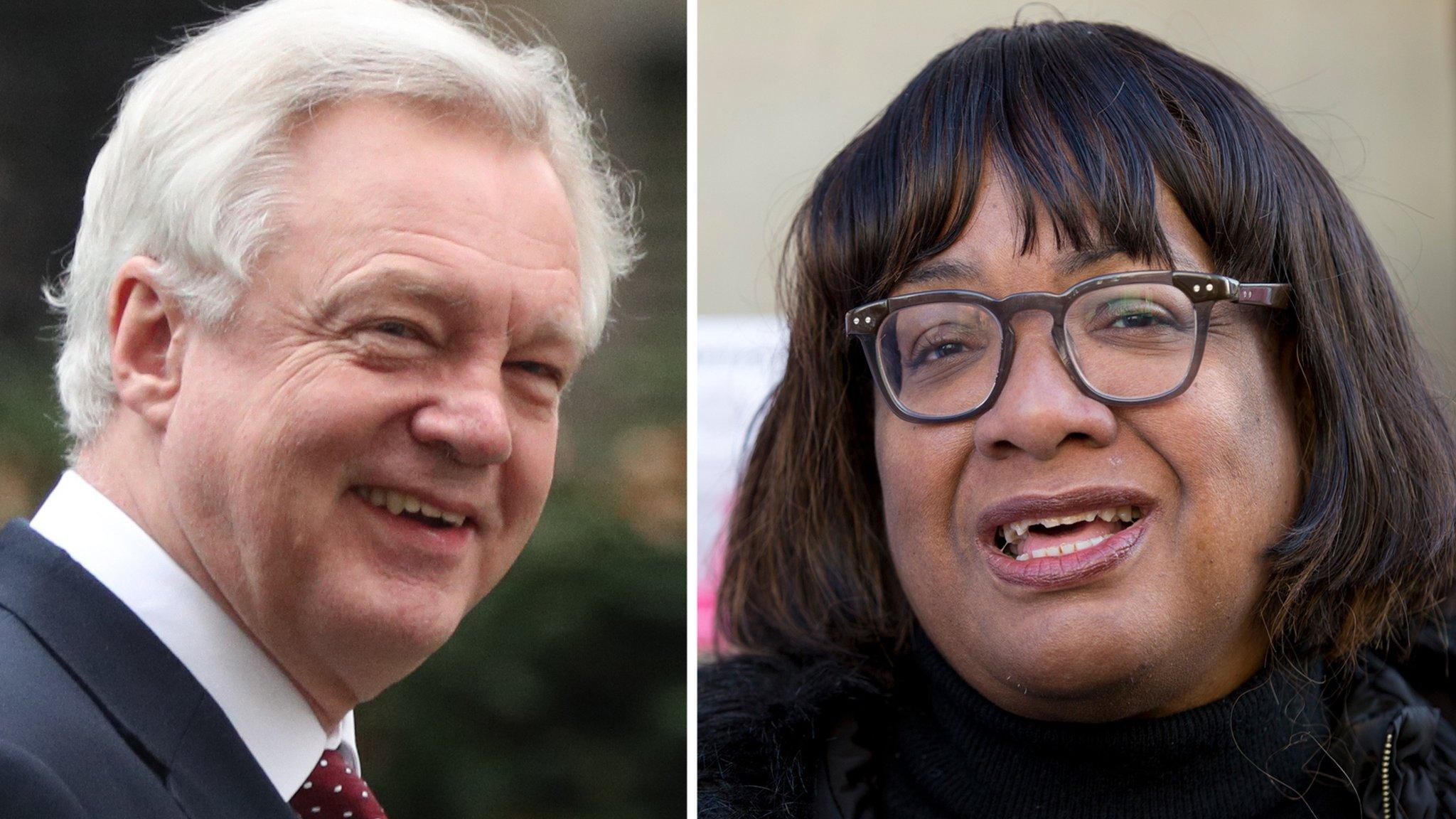Who is the Brexit Secretary David Davis?
- Published
Who is the minister leading the UK's Brexit negotiations? Nicholas Watt reports
Until well into the 1980s, Tory grandees tended to show interest in new MPs only if they had aristocratic heritage or were a waspish intellect in the mould of Chris Patten.
The odd exception was made. Sir John Major was eventually admitted into the Blue Chip group of Tory MPs first elected in 1979, though only when it became clear he was racing to the top.
David Davis, the Brexit Secretary, who was elected to Parliament a generation ago, in 1987, is neither an aristocrat nor a whimsical intellectual.
He had a troubled upbringing and is more of an intellectual bruiser dating back to the time when he stood up to his bullying stepfather.
But Mr Davis marked himself out to Tory grandees after accepting a dare.
Over dinner hosted by the late Alan Clark at his medieval Saltwood Castle in Kent, Mr Davis agreed to walk along the "black" route, the crumbling ramparts overlooking the ruins of a chapel.
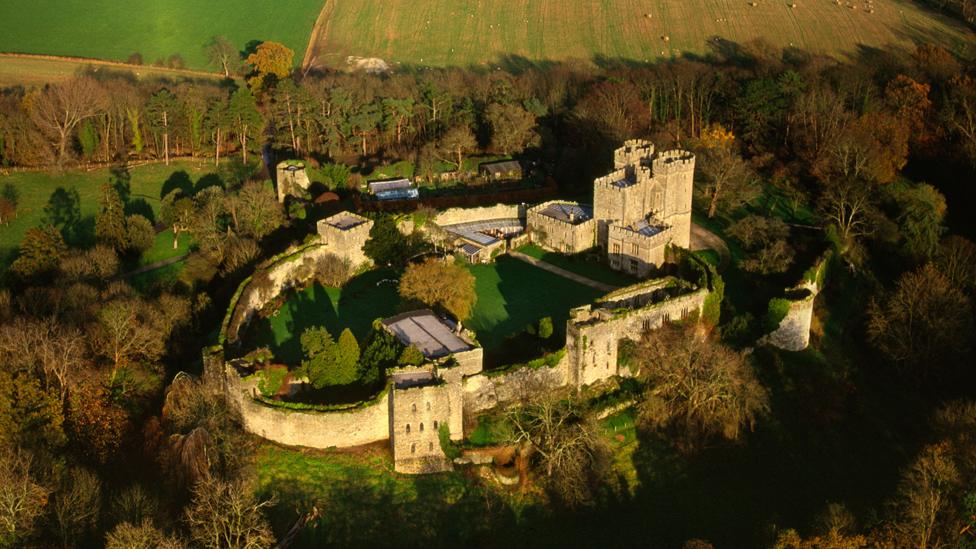
David Davis' physical courage impressed his Conservative colleagues
"[He] did the 'black' route without turning a hair, then retraced his footsteps, hands in pockets - first time that's ever been done!" Clark wrote in his diary.
Mr Davis' training in the SAS (Reserve) regiment - which helped fund his way through university - had paid off.
Nonchalantly completing the black route cemented Mr Davis' reputation among Tories as a fearless hard man.
But it also illustrated another character trait that gives an insight into his approach to the Brexit negotiations.
Mr Davis is prepared to take risks but never in a reckless way, and only after a careful calculation of all the options in front of him.
'Can swagger sitting down'
Mr Davis' belief in taking calculated risks explains one of the central decisions Theresa May has taken in her approach to Brexit.
This was her declaration, outlined in her Lancaster House speech in January on the Brexit negotiations, the UK was prepared to walk away from a bad deal.
Mr Davis had advised the prime minister the EU would take the UK seriously only if it showed it was unafraid of no deal.

Former foe Michael Howard backs David Davis' strong stance towards Brexit negotiations
Lord Howard of Lympne, the former Tory leader, who had difficult relations with David Davis in his days as shadow home secretary, wholeheartedly endorses his approach.
"Obviously it would be better place for the EU and the UK if a sensible constructive deal is struck," Lord Howard told the BBC's Newsnight programme.
"But if, for whatever reason, they don't want to do that, we'll be fine without a deal.
"We can manage without a deal - better with one, fine without one."
The confidence that led Mr Davis to advise the prime minister to think nothing of calling the bluff of the remaining EU member states has won him an admiring band of supporters on the Tory benches. But, to some, his confidence can border on cockiness.
One Tory grandee told Newsnight: "He is the only man I know who can swagger sitting down."
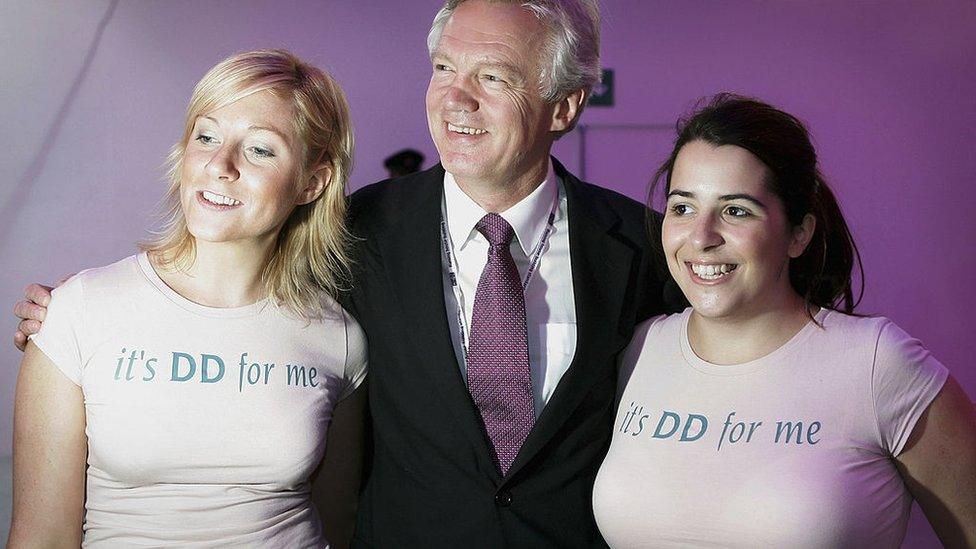
Mr Davis later admitted the use of T-shirts emblazoned with his 2005 leadership campaign slogan, "It's DD for me," had backfired
Andrew Mitchell, the former cabinet minister who ran Mr Davis' unsuccessful campaign for the Tory leadership in 2005, told Newsnight: "He is an extraordinarily optimistic and self-confident person.
"I remember one of the Cameroons saying to me in exasperation that he was the only person he knows who did not go to Eton but has the same level of self-confidence you get from an Eton education."
Mixed career
Mr Mitchell became firm friends with Mr Davis when they both worked in the bruising battleground of the Tory whips' office in the 1990s, pushing through the Maastricht treaty.
There is something of an irony that the man who enforced the integrationist treaty - which pushed many Tories into outright opposition to Brussels - is now leading the UK out of the EU.
Lord Howard, believed to be one of three Eurosceptic cabinet ministers at the time of the Maastricht battle dubbed "bastards" by Sir John Major, sees no contradiction.
"I suppose you could say we've all been on a journey," he told Newsnight.
"Maastricht was a long time ago. The EU has become much more integrationist since then, and the flaws in the project more apparent."
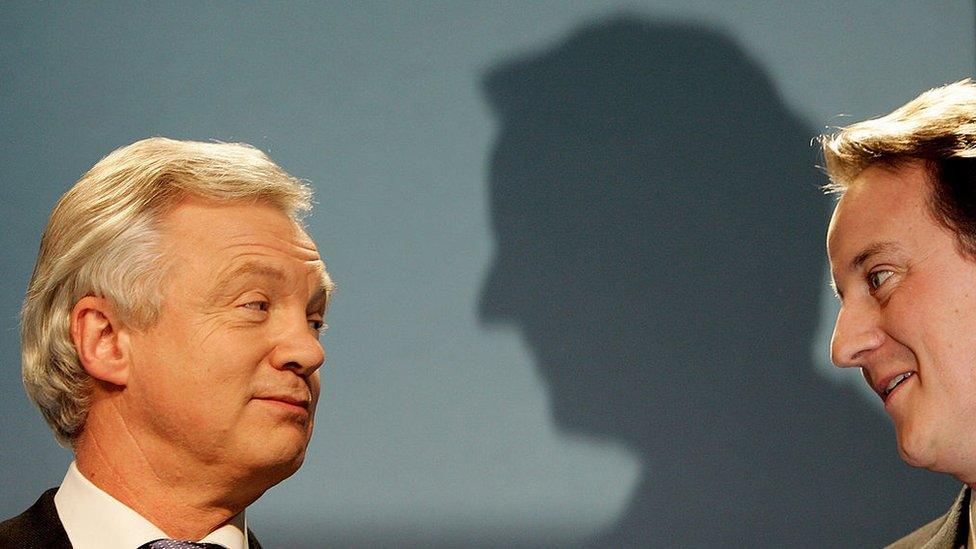
David Davis did not get on with David Cameron
Mr Davis had a mixed career after the Tories lost power in 1997.
He loved hounding civil servants as chairman of the Commons Public Accounts Committee between 1997 and 2001.
He put down a marker when he emerged as the dark horse candidate in the 2001 Tory leadership contest, making him the favourite in 2005 until he was upstaged by David Cameron during the party conference.
The boy from the south London council estate and the Etonian never hit it off.
Mr Cameron regarded Mr Davis as vain and self-aggrandising when he triggered a by-election over civil liberties, which he won, in 2008.
This paved the way for nearly a decade on the backbenches as a serial rebel, where he repeatedly clashed with Mrs May over civil liberties.
The last hurrah?
Then, last summer, in his late 60s, he was finally asked to join the cabinet, by Mrs May, as one of three Brexiteers.
And Mr Davis, unlike Liam Fox and Boris Johnson, who are seen as sources of trouble, has won the trust of the prime minister.
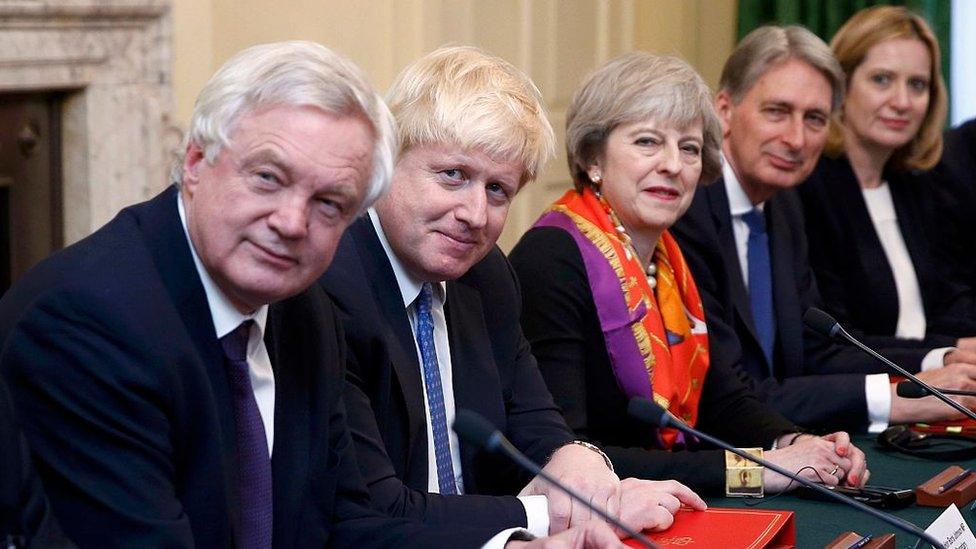
Mr Davis (l) has won the trust of Mrs May
No 10 sources say Mr Davis has come into his own on Brexit, and is even turning into something of an elder statesman.
Just down the street, in his office at No 9, Mr Davis puts his success down to two factors: silence and what he calls proximity.
He has avoided talking out of line and has made a point of squatting in the building next to No 10 to ensure he can easily wander up the street if problems arise.
Mr Davis, who will celebrate his 70th birthday a few months before the Article 50 negotiations are due to end, in March 2019, says he has one shot at making a success of Brexit, which he is determined to achieve.
He hopes to retire a happy man at that point, although he appears not to have ruled out another challenge.
Mr Mitchell told Newsnight: "I don't know if this is last hurrah or not. The extraordinary thing about politics [is you] never know what's round the corner."
A man who can saunter along the ramparts of a medieval castle is no doubt capable of springing surprises.
- Published14 March 2017
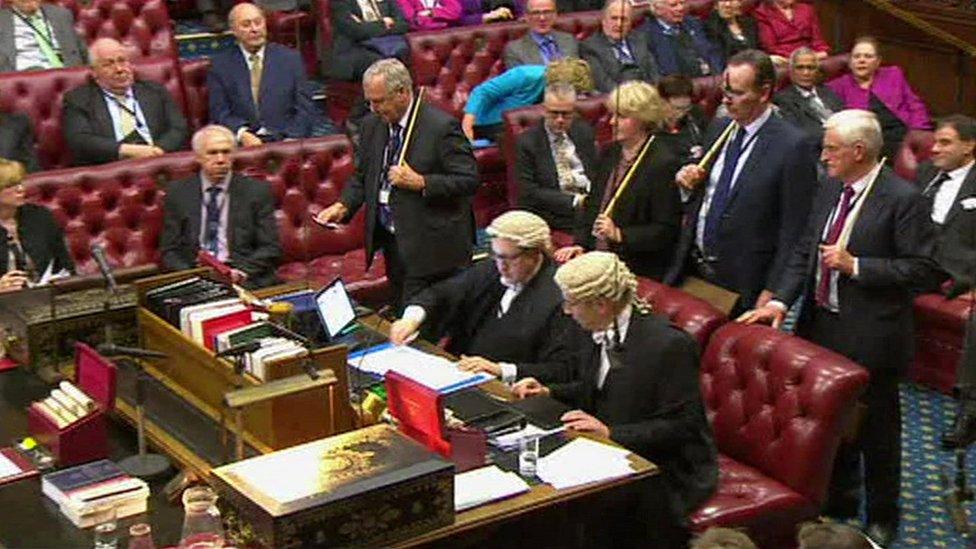
- Published30 December 2020

- Published29 March 2017
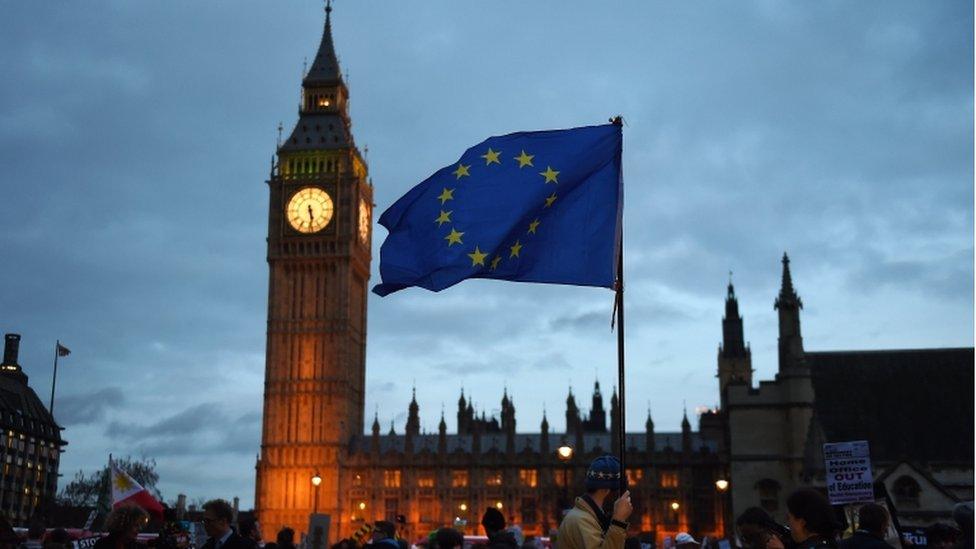
- Published12 March 2017
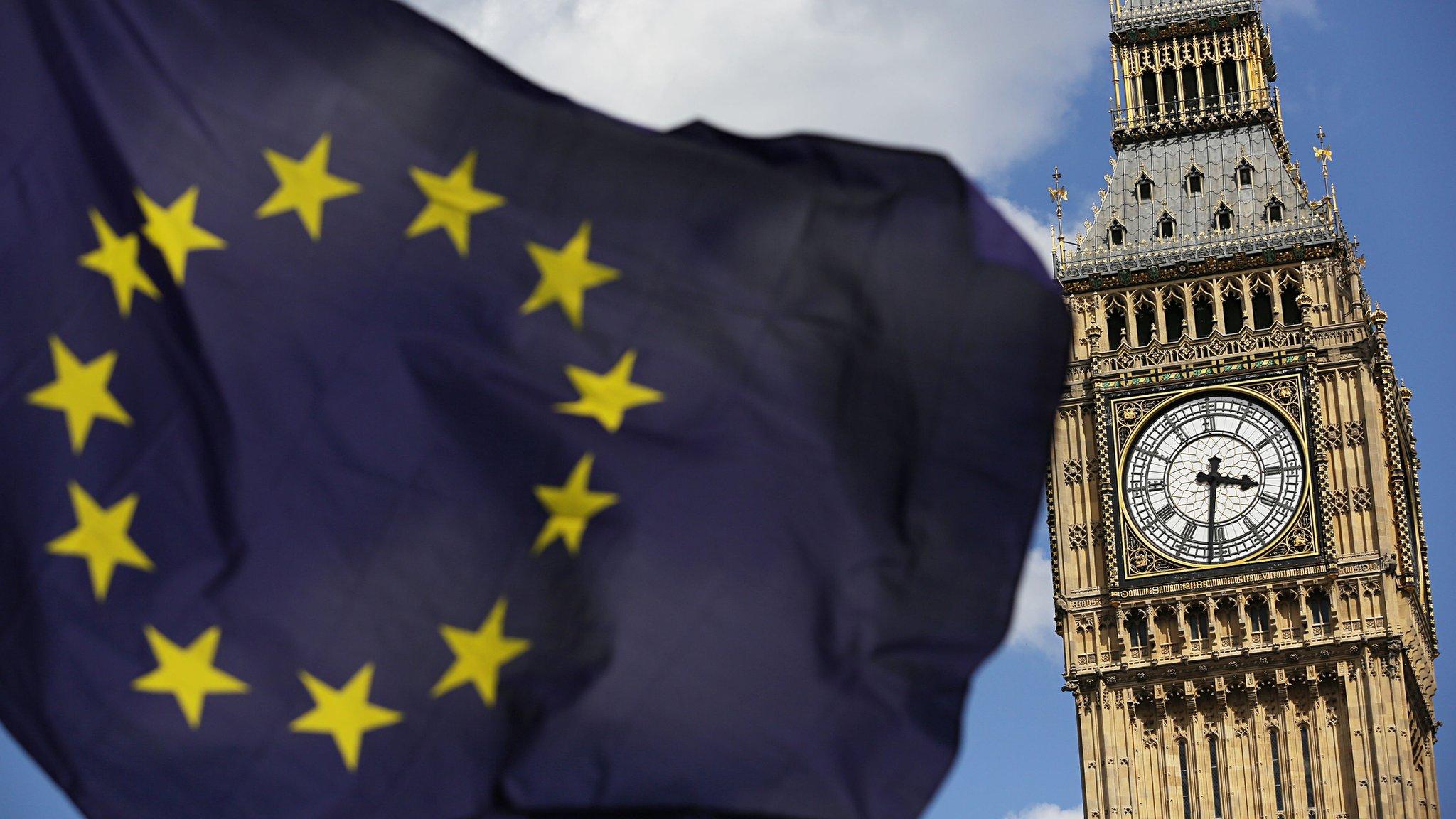
- Published12 February 2017
